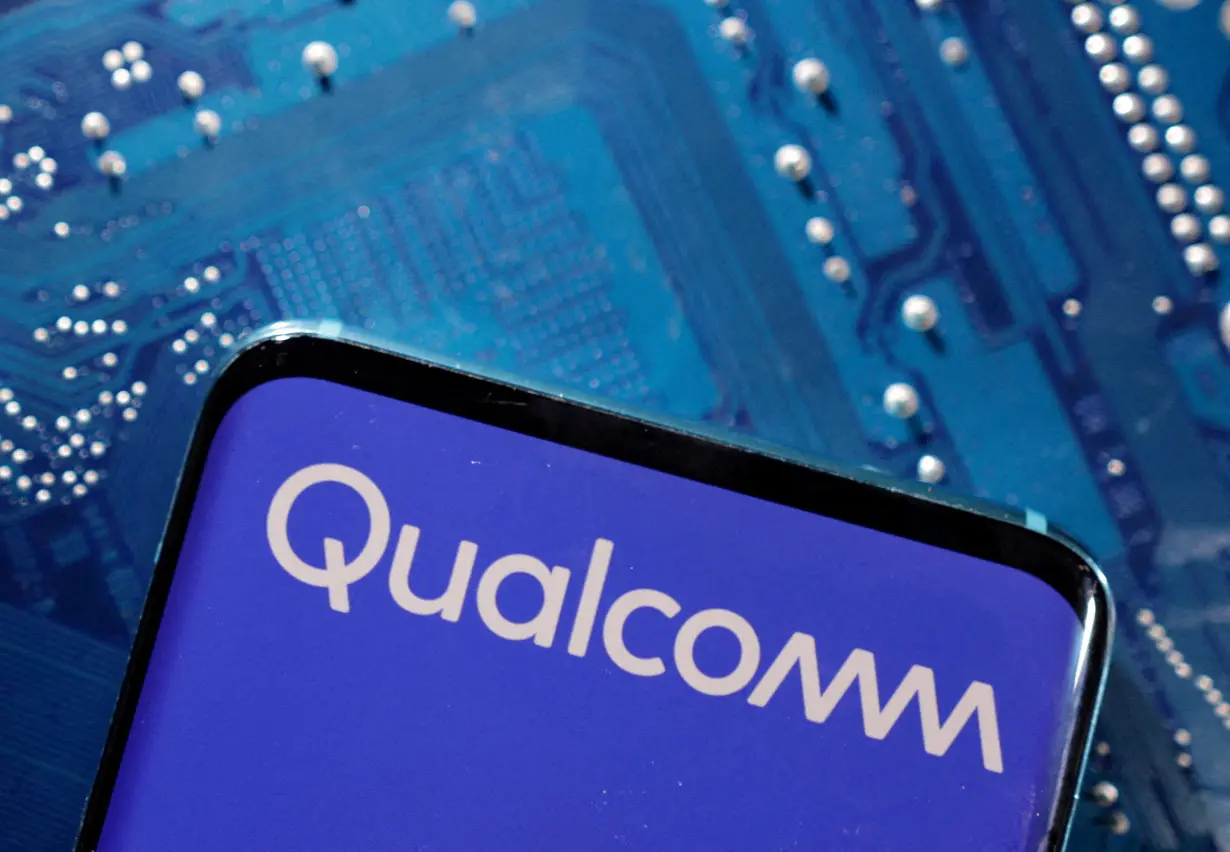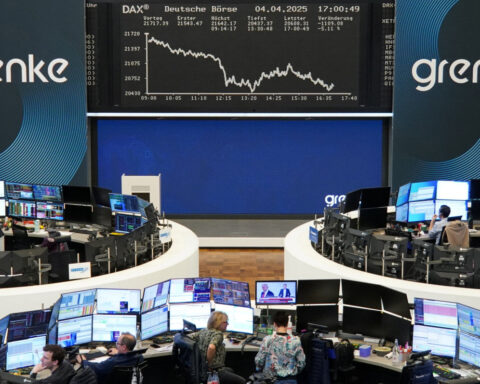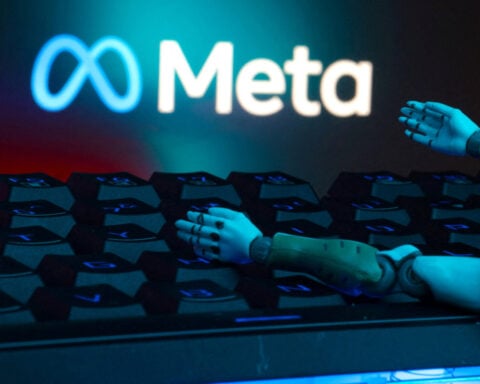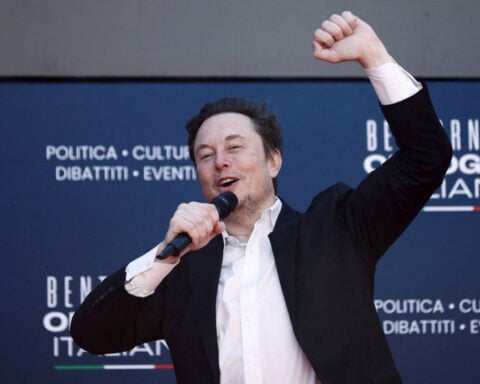By Stephen Nellis
(Reuters) - Qualcomm on Tuesday gave details about a chip for Microsoft Windows-based laptops that it claims will be faster at some tasks than Apple's chips for Mac computers.
Qualcomm executives said the company's new Snapdragon Elite X chip will be available in laptops starting next year and has been redesigned to better handle artificial intelligence tasks like summarizing emails, writing text and generating images.
Those AI features will also factor into Qualcomm's chips for smartphones, with Alphabet's Google and Meta both saying Tuesday they plan to take advantage of them.
The announcement comes a day after Reuters reported Microsoft has encouraged Qualcomm, Nvidia and Advanced Micro Devices to come up with new chips to handle a bevy of new AI features in Windows, the world's most popular PC operating system.
During a video appearance at Qualcomm's event, Microsoft Chief Executive Satya Nadella said the chips would help usher in a new era of "AI PCs" for businesses and consumers.
“The work we're doing together, it's going to bring together these experiences that cannot be done without a new system architecture," Nadella said.
Qualcomm will be the first to market with a chip to challenge Apple, whose laptop and desktop computers have more than doubled their market share since the iPhone maker introduced custom-designed chips in 2020.
Qualcomm claimed on Tuesday the X Elite is faster than Apple's M2 Max chip at some tasks and more energy efficient than both Apple and Intel PC chips. But Qualcomm Senior Vice President Alex Katouzian said the biggest new feature is the chip can handle artificial intelligence models with 13 billion parameters, a proxy measure of sophistication for AI systems that generate text or images.
Francis Sideco, an analyst with TIRIAS Research, said that with companies such as Adobe rolling out the ability to use AI to generate images for everything from real estate brochures to beer can labels, demand for laptops with AI capabilities will rise.
"You've got a lot of smaller businesses and individual designers and creators using these devices. They need that kind of capability," Sideco said.
(Reporting by Stephen Nellis in San Francisco; Editing by Lisa Shumaker and Chris Reese)

 Trump has begun another trade war. Here's a timeline of how we got here
Trump has begun another trade war. Here's a timeline of how we got here
 Canada's leader laments lost friendship with US in town that sheltered stranded Americans after 9/11
Canada's leader laments lost friendship with US in town that sheltered stranded Americans after 9/11
 Chinese EV giant BYD's fourth-quarter profit leaps 73%
Chinese EV giant BYD's fourth-quarter profit leaps 73%
 You're an American in another land? Prepare to talk about the why and how of Trump 2.0
You're an American in another land? Prepare to talk about the why and how of Trump 2.0
 Chalk talk: Star power, top teams and No. 5 seeds headline the women's March Madness Sweet 16
Chalk talk: Star power, top teams and No. 5 seeds headline the women's March Madness Sweet 16
 Purdue returns to Sweet 16 with 76-62 win over McNeese in March Madness
Purdue returns to Sweet 16 with 76-62 win over McNeese in March Madness








